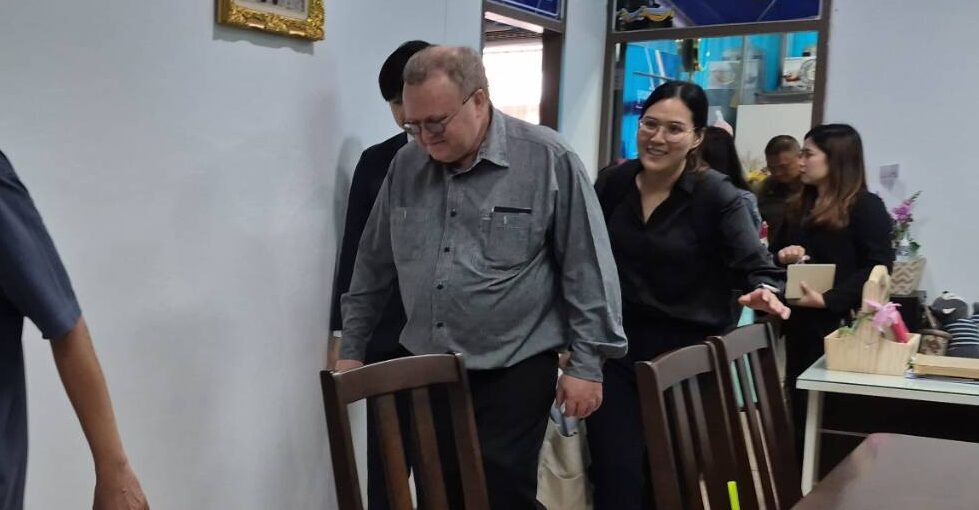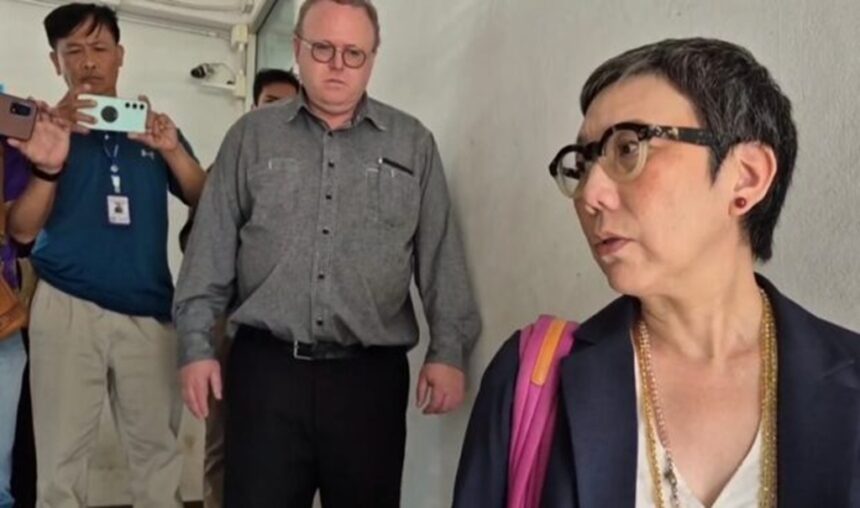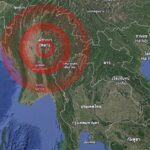Paul Chambers, an American academic, has been released on bail as he awaits trial for charges of Lese Majeste, royal defamation. However, he could still face having his visa and work permit revoked.
The Court of Appeal Region Six granted his bail on Wednesday, requiring a 300,000-baht surety, according to Thai Lawyers for Human Rights (TLHR) in a post shared on X.
His passport has been confiscated, and he is required to wear an electronic monitoring device, his legal team confirmed.
Chambers, who had his visa canceled by the Immigration Bureau following the charges, has until 4 p.m. on Friday to appeal the decision, Thai Lawyers for Human Rights stated.
If Dr Chambers visa revocation is upheld, he will not be deported while legal proceedings are ongoing, according to an immigration officer who spoke anonymously to the Bangkok Post. He must report to the immigration office in Phitsanulok every 30 days as part of his bail conditions.
Human Rights Watch has called for his immediate release, describing the charges as a threat to academic freedom and free speech in Thailand. The U.S. State Department also expressed concern over the 58-year-old’s arrest and detention, noting that Chambers has lived in Thailand since 1993.

Police obtained a warrant to search his office at Naresuan University in Phitsanulok, where Chambers is a lecturer and international affairs adviser. Authorities seized a laptop and other items during the search.
Earlier in the week, the Phitsanulok Provincial Court denied Chambers’ initial bail request after he reported to local police regarding the charges. He faces accusations under Section 112 of the Criminal Code, Thailand’s lese-majeste law, and the Computer Crime Act.
These laws are often applied together in similar cases. lese-majeste in thailand charges carry a penalty of three to 15 years in prison.
The case stems from promotional content for a webinar Chambers presented on Thai military and police reshuffles in October 2024. The original text, which has since been updated online, reportedly included language deemed offensive to the monarchy. Chambers denies writing the material in question.
The complaint against Chambers was filed by the Third Army Region. In response, the House committee on military affairs has requested their presence at a meeting on April 17 to explain their decision to pursue legal action for lese majeste in thailand.
The American Embassy has also been asked to send a representative to the session, according to Wiroj Lakkhanaadisorn, deputy leader of the opposition People’s Party and committee chairman.
Chambers holds a PhD in political science from Northern Illinois University and is a respected voice on civil-military relations and democracy in Asia, particularly in Thailand.
His published works include Khaki Capital: The Political Economy of the Military in Southeast Asia and Praetorian Kingdom: A History of Military Ascendancy in Thailand.
Thailand’s lese-majeste laws, enshrined under Article 112 of the Thai Criminal Code, prohibit defaming, insulting, or threatening the king, queen, heir-apparent, or regent. Violations carry a penalty of three to fifteen years in prison per offense, making it one of the harshest laws of its kind globally.
The law’s broad and vague wording allows significant room for interpretation, often leading to severe punishments for acts ranging from political speeches to social media posts, or even subtle gestures like wearing certain clothing deemed disrespectful.
For instance, individuals have faced decades in prison for multiple charges, with sentences stacking up to 50 years or more in extreme cases.
Related News:
Chiang Rai Court Sentences Vendor to 50 Years for Lese Majeste

Geoff Thomas is an award winning journalist known for his sharp insights and no-nonsense reporting style. Over the years he has worked for Reuters and the Canadian Press covering everything from political scandals to human interest stories. He brings a clear and direct approach to his work.














